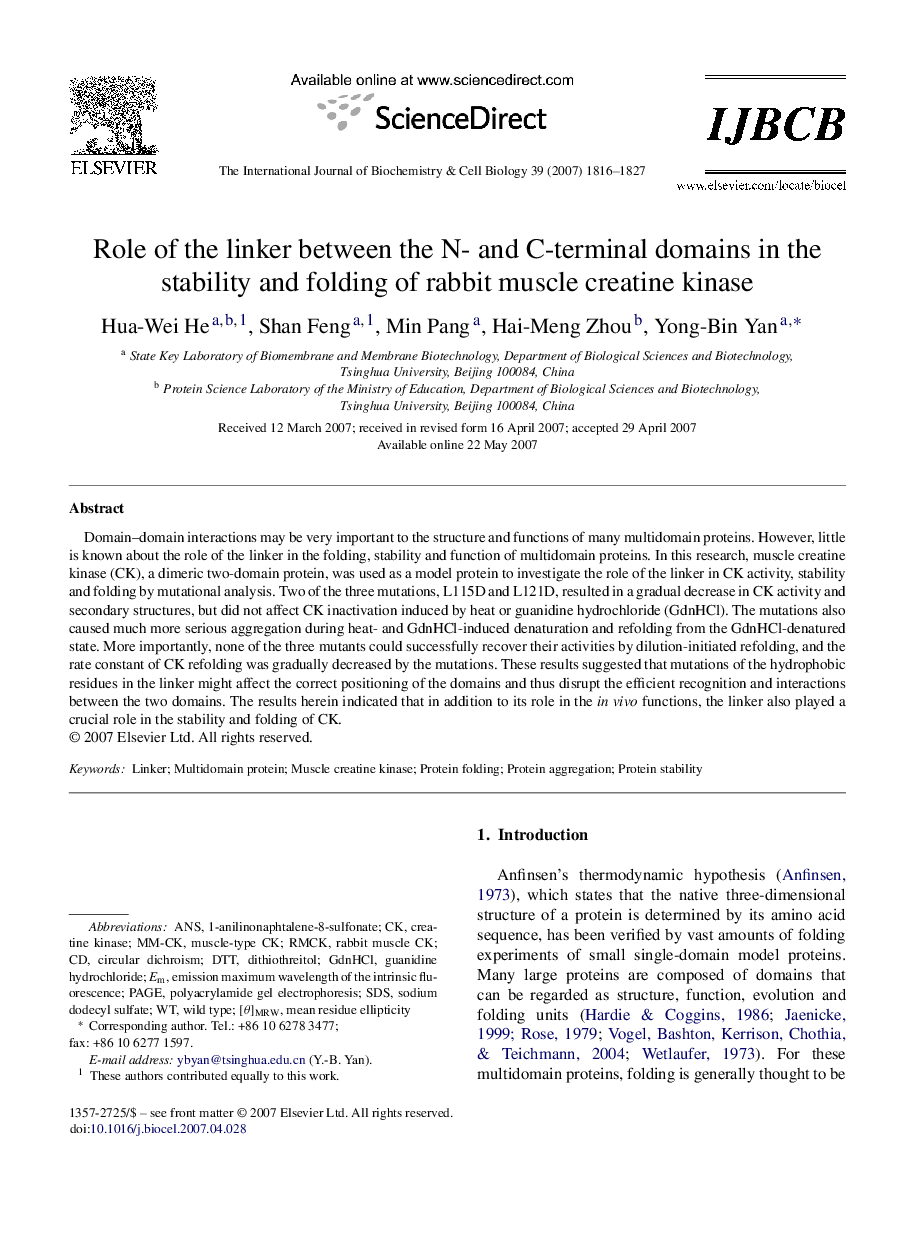| Article ID | Journal | Published Year | Pages | File Type |
|---|---|---|---|---|
| 1985402 | The International Journal of Biochemistry & Cell Biology | 2007 | 12 Pages |
Abstract
Domain-domain interactions may be very important to the structure and functions of many multidomain proteins. However, little is known about the role of the linker in the folding, stability and function of multidomain proteins. In this research, muscle creatine kinase (CK), a dimeric two-domain protein, was used as a model protein to investigate the role of the linker in CK activity, stability and folding by mutational analysis. Two of the three mutations, L115D and L121D, resulted in a gradual decrease in CK activity and secondary structures, but did not affect CK inactivation induced by heat or guanidine hydrochloride (GdnHCl). The mutations also caused much more serious aggregation during heat- and GdnHCl-induced denaturation and refolding from the GdnHCl-denatured state. More importantly, none of the three mutants could successfully recover their activities by dilution-initiated refolding, and the rate constant of CK refolding was gradually decreased by the mutations. These results suggested that mutations of the hydrophobic residues in the linker might affect the correct positioning of the domains and thus disrupt the efficient recognition and interactions between the two domains. The results herein indicated that in addition to its role in the in vivo functions, the linker also played a crucial role in the stability and folding of CK.
Keywords
SDSDTTMM-CK1-anilinonaphtalene-8-sulfonateMultidomain proteinGdnHClPAGEpolyacrylamide gel electrophoresisProtein foldingprotein aggregationdithiothreitolcircular dichroismANSsodium dodecyl sulfatemuscle creatine kinasemean residue ellipticitywild typeProtein stabilityLinkerCreatine kinaseGuanidine hydrochloride
Related Topics
Life Sciences
Biochemistry, Genetics and Molecular Biology
Biochemistry
Authors
Hua-Wei He, Shan Feng, Min Pang, Hai-Meng Zhou, Yong-Bin Yan,
